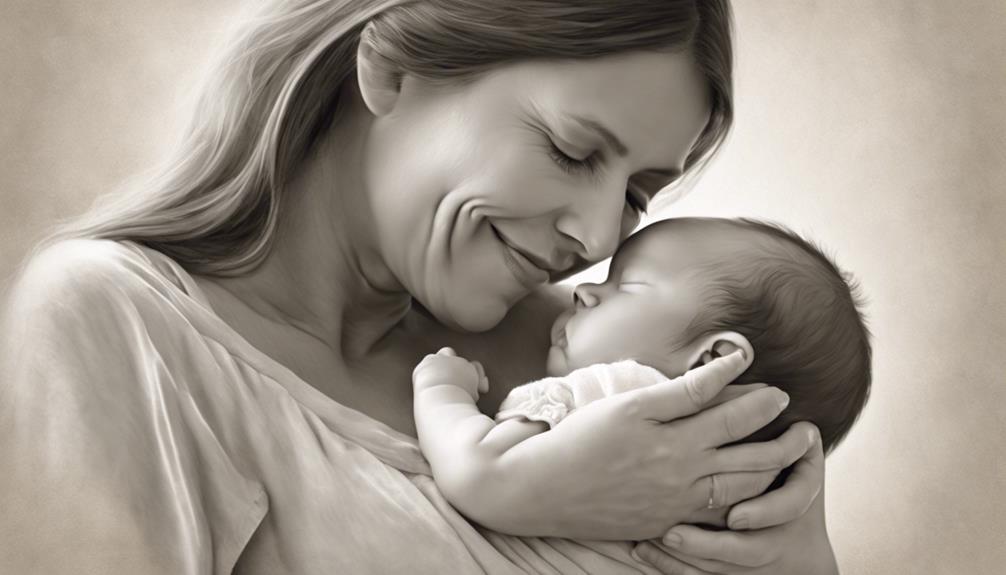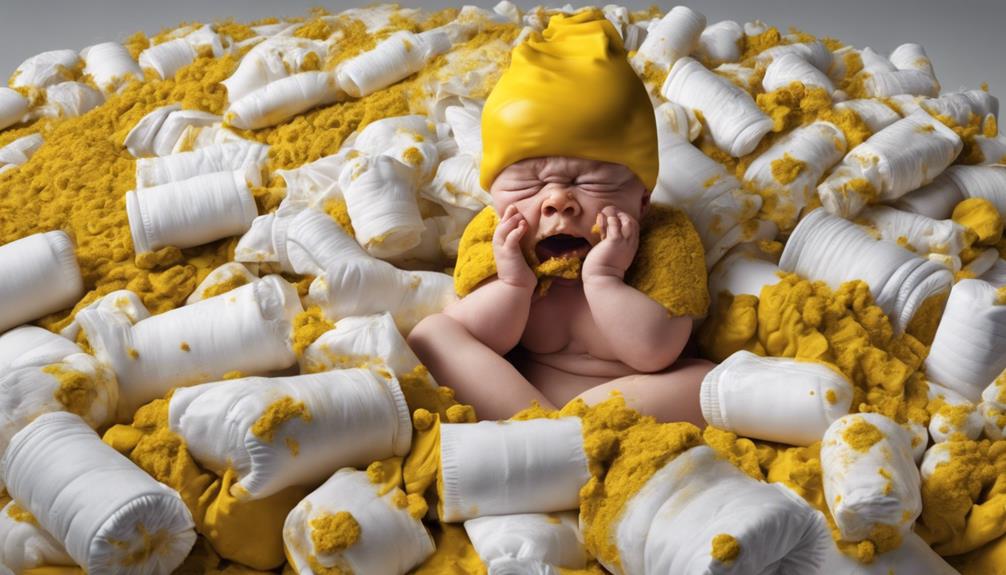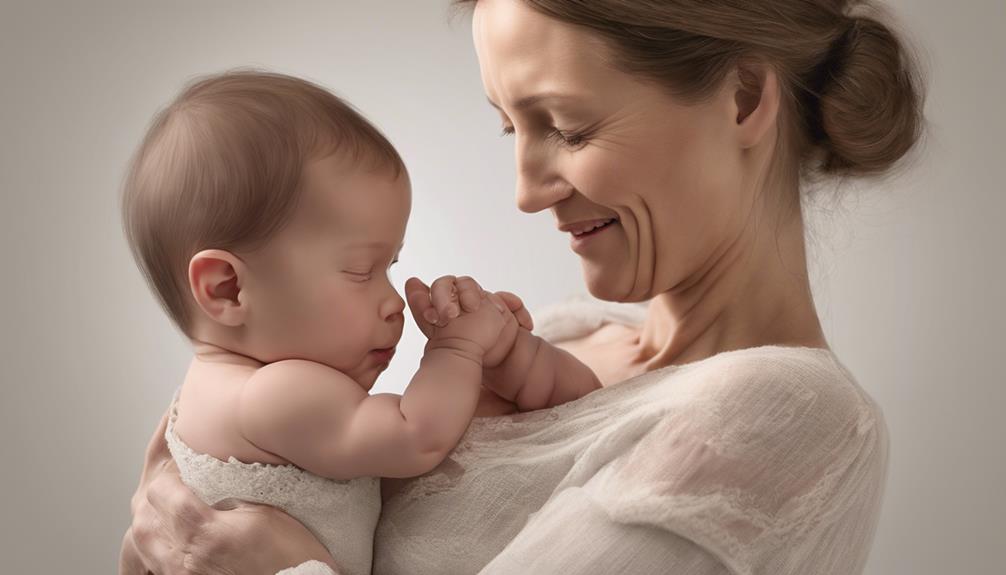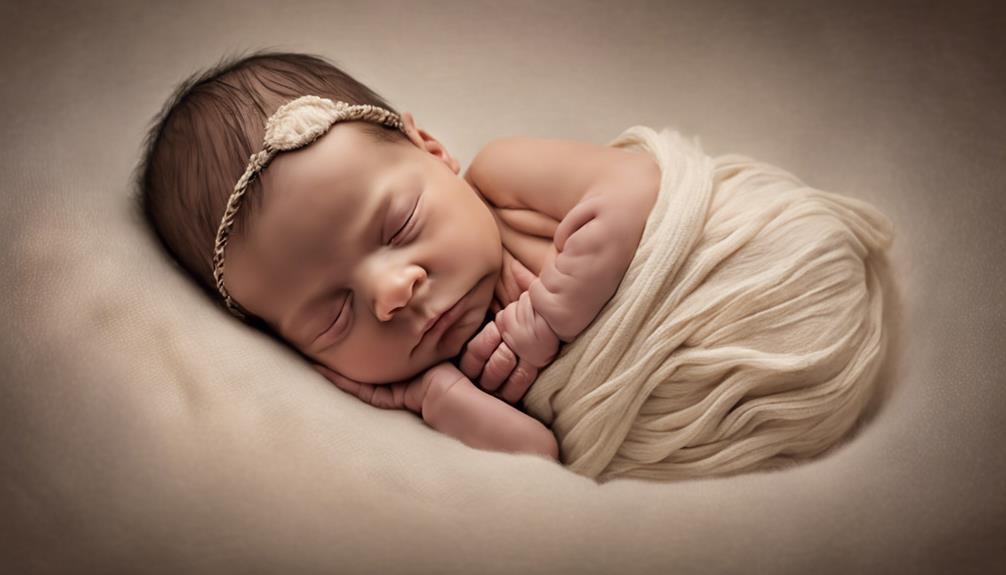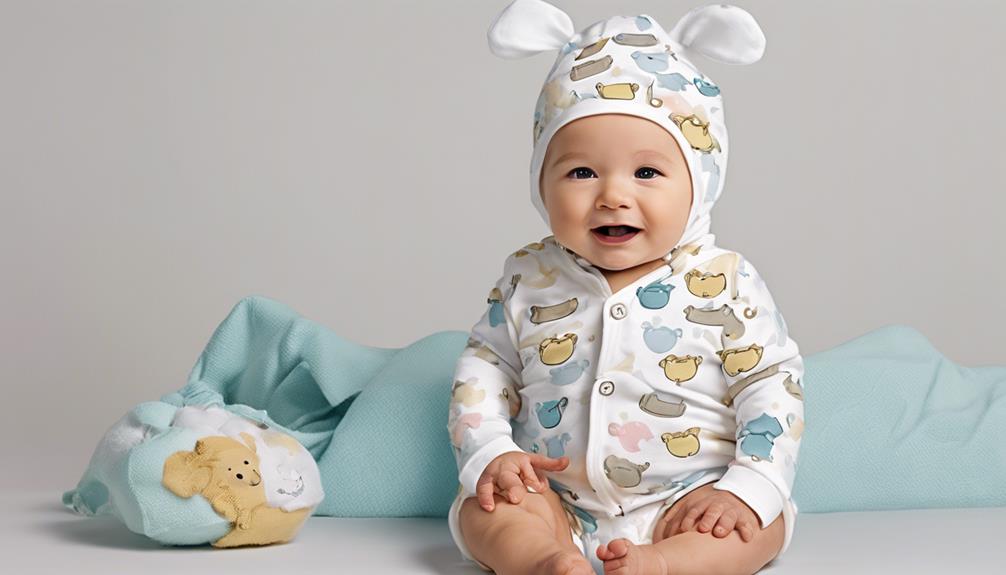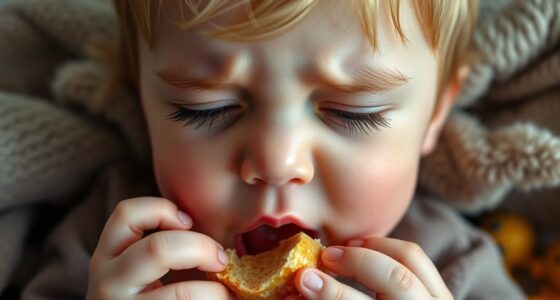If you've ever wondered how to ease your newborn's hiccups post-feeding, understanding effective methods can provide comfort for both you and your little one.
From simple burping techniques to strategic positioning, there are various approaches to help alleviate those pesky hiccups.
But what about those times when the hiccups seem persistent or concerning?
Stay tuned to discover essential tips and tricks to navigate this common yet sometimes worrisome occurrence with ease and confidence.
Key Takeaways
- Patting or rubbing the back can help relieve hiccups after breastfeeding.
- Keeping the baby upright post-feeding aids in reducing hiccups.
- Ensuring a proper latch during breastfeeding can prevent hiccups.
- Avoid overfeeding to minimize the occurrence of hiccups in newborns.

Comfy Cubs Muslin Burp Cloths 20" x 10", Pack of 10 – Large, 6-Layer, Ultra Absorbent 100% Cotton for Baby Drool and Messes – Soft, Safe & Gentle Baby Burp Cloths for Boys & Girls – Multi
Soft and Gentle Baby Burp Cloths: Made from 100% breathable muslin cotton, these burping cloths are lightweight, gentle,…
As an affiliate, we earn on qualifying purchases.
As an affiliate, we earn on qualifying purchases.
Causes of Newborn Hiccups
If your newborn is experiencing hiccups after breastfeeding, understanding the causes behind these occurrences can help you address and alleviate them effectively. Baby hiccups often occur because your little one might be swallowing air while feeding. This swallowing of air can happen more frequently in newborns due to their immature digestive systems, making them more prone to hiccups. Additionally, overfeeding during breastfeeding can lead to hiccups as well.
Another factor to take into account is sudden temperature changes, which could trigger hiccups in your baby after nursing. Also, gastroesophageal reflux, a common condition in newborns where stomach contents come back up into the esophagus, might also be a cause of those post-feeding hiccups. It's essential to remember that these hiccups are generally harmless and tend to resolve on their own.

Philips Avent Soothie Baby Pacifiers – 100% Silicone Pacifiers for Babies 0-3 Months, One-Piece Design, BPA-Free, Extra Durable, Green, 4 Pack, Model SCF190/41
Newborn pacifier 0-3 months supporting baby’s natural suckling need: designed to fulfill newborns' natural suckling reflex to self-soothe…
As an affiliate, we earn on qualifying purchases.
As an affiliate, we earn on qualifying purchases.
Techniques to Relieve Hiccups

To help relieve hiccups in your newborn after breastfeeding, gently patting or rubbing their back can be an effective technique. Sometimes, your baby's diaphragm can get a little agitated, causing those pesky hiccups, but fret not, there are ways to help ease their discomfort.
Here are some techniques you can try:
- Offering a pacifier to suck on can relax the diaphragm and stop hiccups post-feeding.
- Keeping your baby upright for about 20-30 minutes after breastfeeding can aid in reducing hiccups.
- Burping your baby midway through and after breastfeeding sessions can help prevent hiccups.
- Avoiding overfeeding and ensuring a proper latch during breastfeeding can also help minimize hiccups in newborns.

Read to Your Baby Every Day: 30 classic nursery rhymes to read aloud (Stitched Storytime)
As an affiliate, we earn on qualifying purchases.
As an affiliate, we earn on qualifying purchases.
Positioning for Hiccup Relief

After addressing techniques to relieve hiccups in newborns post-breastfeeding, now let's explore how positioning plays an essential role in providing relief from these discomforts.
Keeping your baby upright after breastfeeding is important as it helps alleviate hiccups by reducing pressure on their diaphragm. Placing your newborn in a slightly upright position on your shoulder or in a baby seat can aid in soothing post-feeding hiccups. Additionally, elevating the head of your baby's crib slightly after breastfeeding can assist in preventing or reducing hiccups by aiding digestion.
Remember to gently pat your baby's back or rub their belly in an upward motion to provide comfort and help stop hiccups after breastfeeding. Ensuring that your little one remains calm and relaxed during and after feeding sessions is also important in minimizing hiccups. By focusing on proper posture and creating a peaceful environment, you can help your baby find relief from hiccups and promote relaxation.
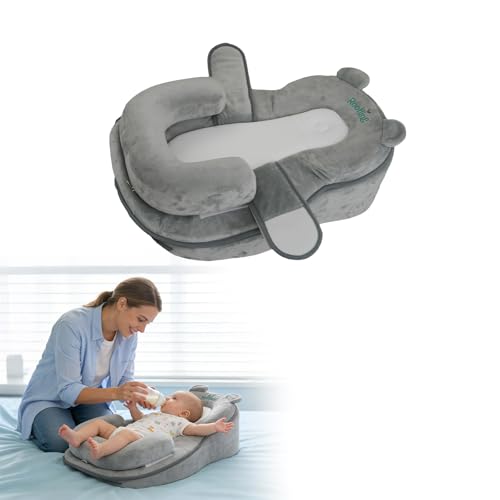
XFaa Rootling Baby Feeding Pillow, Anti Overflow Feeding Pillow for Reducing Spit-Up, Safety Nursing Pillow, Baby Lounger Reflux Wedge Breastfeeding, Removable top and Bottom (Gray, Small)
【Dual-Function Detachable Design】: The removable wedge segment transforms this pillow into a flat surface when detached. Perfect for…
As an affiliate, we earn on qualifying purchases.
As an affiliate, we earn on qualifying purchases.
Tips for Breastfeeding and Hiccups
When nursing your newborn, remember to burp them after to release trapped air and minimize the occurrence of hiccups. Proper nursing techniques can help prevent hiccups and ensure your baby's comfort. Here are some tips to assist you:
- Guarantee a proper latch: A good latch can reduce the intake of excess air, decreasing the likelihood of hiccups.
- Keep your baby upright: After feeding, keep your baby upright for 20-30 minutes to aid in digestion and reduce hiccups.
- Avoid overfeeding: Be mindful of your baby's cues to prevent overfeeding, which can lead to discomfort and hiccups.
- Use gentle back patting: Gently patting or rubbing your baby's back can help soothe them and alleviate hiccups after nursing.
- Stay attentive: Pay attention to your baby's feeding patterns and reactions to address any issues promptly.
Preventing Future Hiccups

To prevent future hiccups in your newborn after breastfeeding, focus on creating a calm and quiet feeding environment. This promotes comfortable digestion and minimizes the likelihood of hiccups occurring. Remember to burp your baby after each feeding to release any trapped air that could lead to hiccups.
Ensuring a vital latch during breastfeeding is essential. It can reduce air intake, helping to minimize hiccups. Opt for smaller, more frequent feedings to aid in digestion and decrease the chances of hiccups happening.
After feeding, keep your baby upright for at least 20-30 minutes to prevent acid reflux and hiccups. By incorporating these practices into your routine, you can help prevent future hiccups in your little one and create a more comfortable feeding experience for both of you.
Frequently Asked Questions
How Do I Stop My Baby From Hiccuping After Breastfeeding?
To stop your baby from hiccuping after breastfeeding, try burping them to release trapped air. Keep your little one upright for 20-30 minutes post-feeding. Offer a pacifier gently. Avoid overfeeding and create a calm environment for your newborn.
Is It OK to Lay Baby Down With Hiccups?
It's perfectly fine to lay your baby down with hiccups. Hiccups don't affect their breathing. If hiccups persist or cause concern, consult your pediatrician. Keeping your baby upright if they have reflux can help prevent vomiting.
How Can I Soothe My Newborn's Hiccups?
You can ease your newborn's hiccups by burping gently, keeping them upright after feeding, offering a pacifier, avoiding overfeeding, and giving gentle belly rubs. Remember, a calm and well-fed baby is a happy baby!
Should I Stop Feeding Newborn With Hiccups?
You should continue feeding your newborn with hiccups. Hiccups are safe during feeding and won't harm your baby. If hiccups cause discomfort, pause to burp your baby or try different feeding positions. Resume once hiccups ease.
Conclusion
So, next time your newborn gets hiccups after breastfeeding, remember to stay calm and try some gentle techniques to help them pass. Trust your instincts and know that these hiccups are usually harmless and will go away on their own.
Isn't it comforting to know you can easily soothe your little one and make those hiccups disappear? Keep up the good work, parent!
